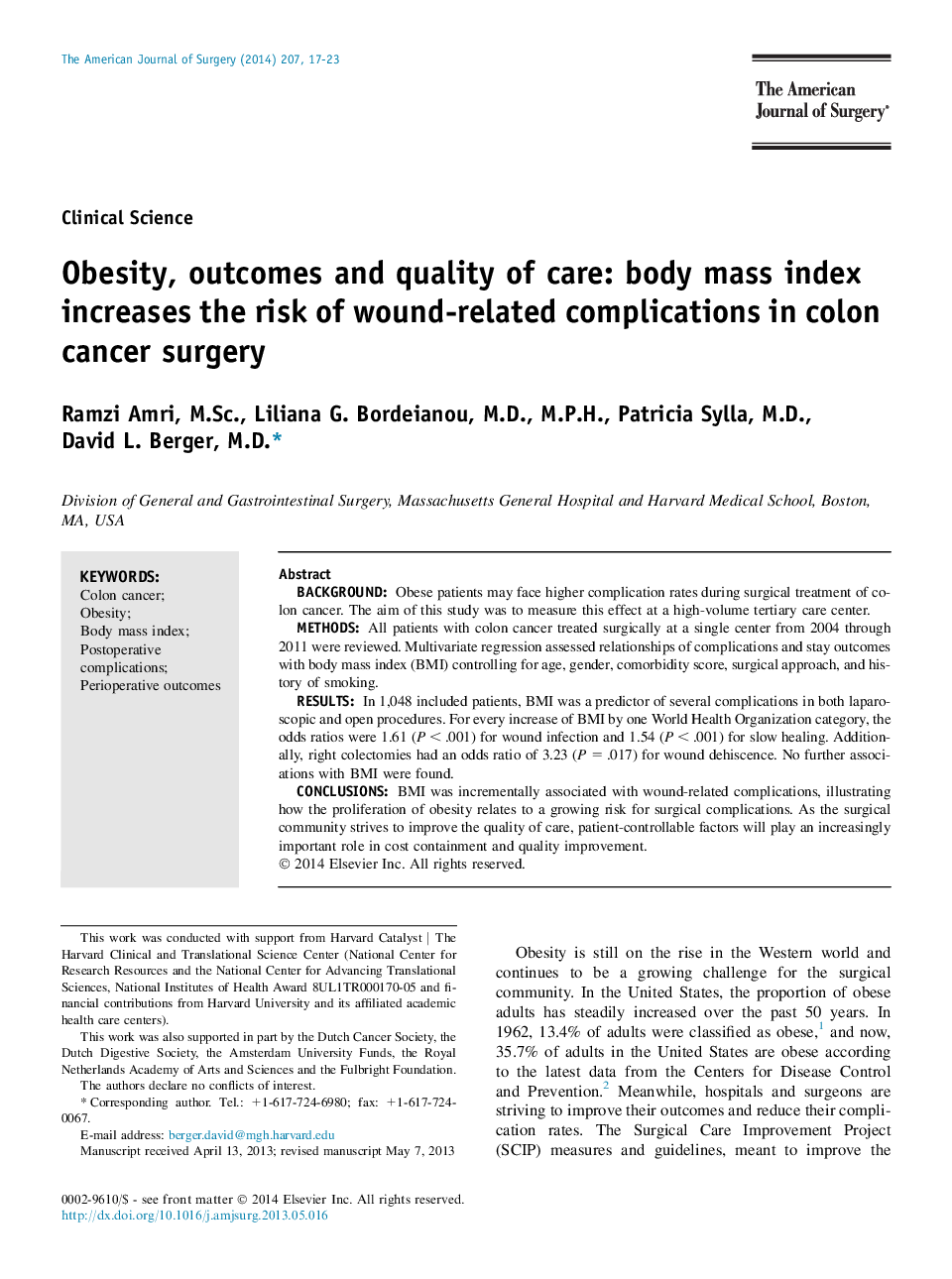| Article ID | Journal | Published Year | Pages | File Type |
|---|---|---|---|---|
| 4279191 | The American Journal of Surgery | 2014 | 7 Pages |
BackgroundObese patients may face higher complication rates during surgical treatment of colon cancer. The aim of this study was to measure this effect at a high-volume tertiary care center.MethodsAll patients with colon cancer treated surgically at a single center from 2004 through 2011 were reviewed. Multivariate regression assessed relationships of complications and stay outcomes with body mass index (BMI) controlling for age, gender, comorbidity score, surgical approach, and history of smoking.ResultsIn 1,048 included patients, BMI was a predictor of several complications in both laparoscopic and open procedures. For every increase of BMI by one World Health Organization category, the odds ratios were 1.61 (P < .001) for wound infection and 1.54 (P < .001) for slow healing. Additionally, right colectomies had an odds ratio of 3.23 (P = .017) for wound dehiscence. No further associations with BMI were found.ConclusionsBMI was incrementally associated with wound-related complications, illustrating how the proliferation of obesity relates to a growing risk for surgical complications. As the surgical community strives to improve the quality of care, patient-controllable factors will play an increasingly important role in cost containment and quality improvement.
